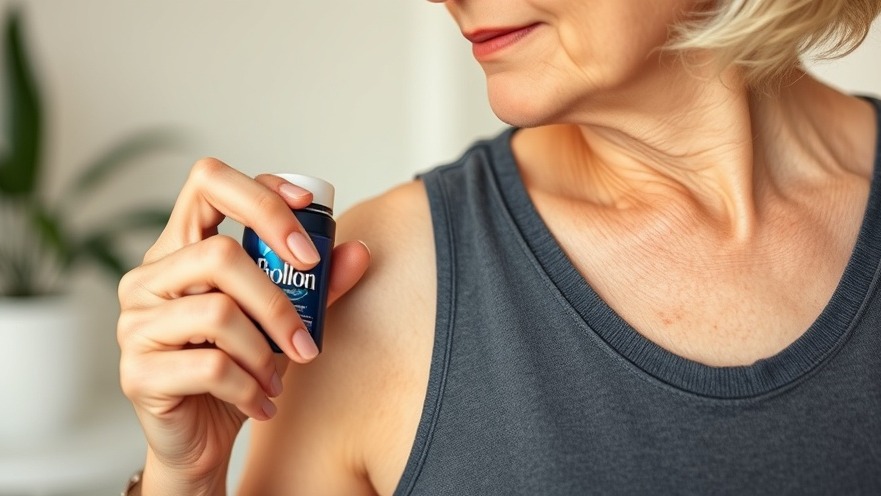
Why the Ingredients in Conventional Deodorants Matter
As we age, our bodies change in many ways, and so do our needs for health and wellness. One area that often goes overlooked is the products we apply to our skin, particularly in our underarms. Many conventional deodorants contain synthetic chemicals that might not only irritate sensitive skin but could also have more serious health repercussions. Ingredients like aluminum compounds, parabens, and artificial fragrances can be concerning for anyone looking to prioritize their health—especially for middle-aged and senior adults who are increasingly aware of their health choices.
In 'Stop Putting This On Your Armpits!', the discussion dives into the impact of conventional deodorants on health, exploring key insights that sparked deeper analysis on our end.
Embracing Natural Alternatives for Underarm Care
Instead of reaching for those store-bought deodorants, consider natural options that can work just as effectively without the toxic ingredients. For instance, many people have found success using baking soda, coconut oil, or essential oils such as tea tree or lavender, which not only smell delightful but also have antibacterial properties. Adopting these natural alternatives can also lead to better skin health and may help you feel more in control of your health choices.
The Impact of Nutrition and Hydration on Sweat and Odor
What you eat plays a crucial role in how your body smells and how much you sweat. Foods that contain high amounts of sugar and processed ingredients can sometimes worsen body odor. On the other hand, incorporating hydration-rich fruits and vegetables, along with anti-inflammatory foods like fish and nuts, can help manage your body’s odor naturally. Staying hydrated not only keeps your skin in good condition but can also impact your overall well-being.
The Connection Between Stress and Body Odor
Did you know that stress can impact not only your mind but your body too? High levels of stress can lead to increased sweat production, which also means there is a higher likelihood of body odor. The stressors of aging—be it financial worries, health concerns, or feelings of loneliness—can contribute to this cycle. Mindfulness exercises and practices such as yoga or tai chi can work wonders for mental wellness, helping to alleviate stress and improve your overall quality of life.
Coping with Aging and Mental Health
The topic of coping with aging is often overlooked, but there is a significant relationship between mental and physical hygiene as we age. Issues like anxiety, depression, or cognitive decline can all manifest physically. Embracing practices like journaling for mental clarity or guided imagery for relaxation can be integral for mental wellness in seniors.
Creating New Rituals for Self-Care
As you transition away from chemical deodorants, establishing a self-care routine can be empowering. Build a calming bedtime space that incorporates the use of essential oils or calming herbal teas such as chamomile or lavender, known for their sleep-enhancing benefits. Creating a relaxing evening ritual, such as reading or practicing deep breathing exercises before bed, can dramatically improve your sleep and mitigate nighttime anxiety. Remember, the journey to better health is about implementing small, sustainable changes.
The Importance of Community and Social Connections
Aging can be a lonely experience, and social connections become increasingly important for mental health. Engaging with others can not only uplift your mood but also create a supportive environment where healthy habits can be celebrated and shared. Consider finding local support groups or engaging in community activities. Creating those connections can significantly improve mental wellness for seniors, directly tying into the physical aspects of health.
Conclusion: Prioritize Your Well-Being
As we unpacked in the video, exploring non-toxic alternatives for personal care is just one piece of the larger puzzle of health and wellness. It's essential to make choices that will not only benefit your physical health but also your mental health as you navigate the challenges of aging. By embracing natural products, maintaining social connections, and nurturing mental wellness, you can foster a healthier, more vibrant life.
 Add Element
Add Element  Add Row
Add Row 




Write A Comment